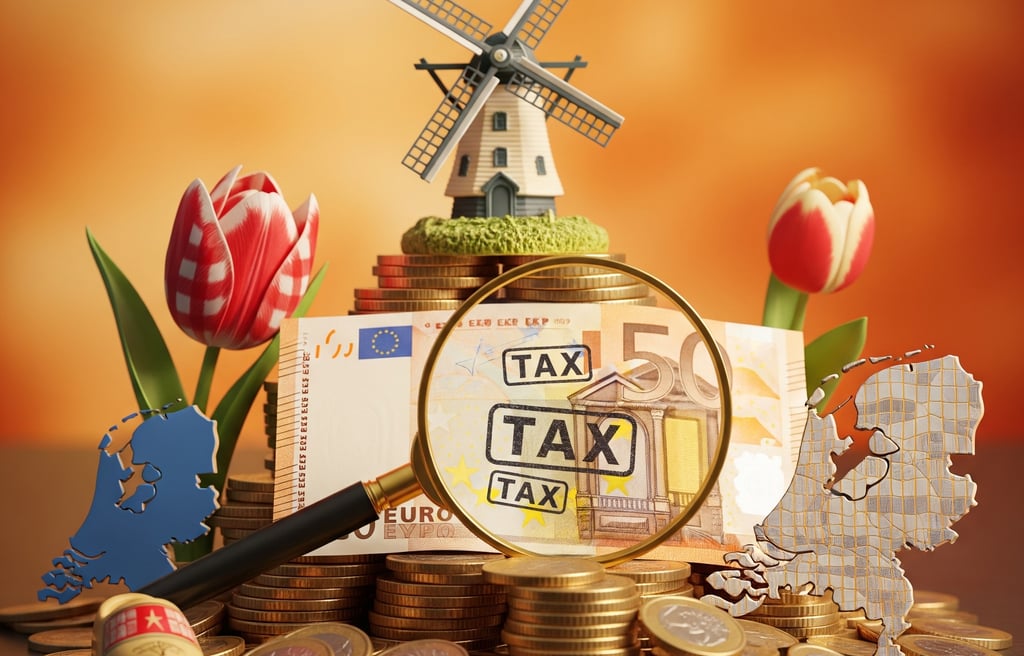What happened on Prinsjesdag2025?
Read what lies ahead in 2026 for you, as the Dutch government launched its tax plan on Prinsjesdag2025, impacting all out wallets. Expect costs to rise 2026
INCOME & TAXES
9/17/20253 min read


The Tax Changes Announced on Prinsjesdag in the Netherlands
The Hague is buzzing once again, and for good reason. Prinsjesdag, the traditional opening of the parliamentary year, has brought with it a fresh set of budget proposals and, as always, significant tax changes that will impact individuals and businesses across the Netherlands. This year, with a caretaker government in place, the proposals are designed to be less controversial, but they still carry a considerable punch. Let's break down the key tax changes you need to know about for the coming year.
Income Tax: A Subtle Squeeze on Purchasing Power
While the government's plans aim for an overall increase in purchasing power, a key element of the new budget is a subtle, yet significant, change to income tax brackets. To offset other budget reversals, the income tax brackets will not be fully adjusted for inflation. This means that while the thresholds are increasing, they are not keeping pace with the rising cost of living.
First Bracket: The threshold for the first income tax bracket will increase slightly, from €38,441 to €38,883.
Second Bracket: The second bracket will see a more notable jump, rising from €76,817 to €79,137.
Tax Rates: While the tax rate on the lowest bracket will see a small reduction, the rate on the second bracket will go up. This could mean that some low- and middle-income households may not feel the full benefit of their increased purchasing power.
Box 3: Higher Tax on Savings and Investments
For savers and investors, the changes to the Box 3 tax on wealth are particularly important. The government is moving to increase the tax burden on those with assets.
Reduced Tax-Free Allowance: The amount you can hold tax-free will be reduced from €57,684 to €51,396. This means more people will fall into the taxable bracket.
Higher Deemed Returns: The assumed return on investments for tax purposes will be increased significantly, from 5.88% to 7.78%. This "fictive" return is what your tax is based on, not your actual gains. This could lead to a higher tax bill, even if your investments perform poorly.
Business Taxes: Targeted Adjustments and Support
The new proposals also include several measures for businesses, with a focus on specific sectors and a push for green initiatives.
Corporate Income Tax: The rates for corporate income tax will remain unchanged. The small and medium-sized enterprise (SME) tariff stays at 19% for profits up to €200,000, and the standard tariff remains 25.8% for profits exceeding that amount.
Support for Start-ups: In a positive move for the tech sector, a new tax rule will make it cheaper for employees of start-ups and scale-ups to receive stock options. This is a crucial step in helping these companies attract and retain talent.
Changes to Motor Vehicle Tax: Zero-emission cars will receive a greater tax reduction on motor vehicle tax, extended until 2030, reinforcing the government's commitment to sustainability.
Excise Duties: The reduced excise duties on petrol, diesel, and LPG will be extended, providing some relief at the pump for both individuals and businesses.
Other Notable Changes
Beyond income and business taxes, there are a few other changes to be aware of:
Flight Tax: A new, variable flight tax will be introduced. The tax paid per passenger will be based on the distance of the flight, with longer-haul flights incurring a higher charge.
Gifts and Inheritance: New rules will ensure biological and legal children are treated equally, and stricter measures will be put in place to prevent the use of marriage contracts to avoid inheritance tax. The deadline to file inheritance tax will also be extended from 8 to 20 months.
VAT on Accommodation: The reduced 9% VAT rate for overnight accommodation will increase to the standard 21%, impacting the tourism sector.
What's Next?
It is important to remember that these are proposals. The tax plans will now be debated in the House of Representatives and the Senate before they are officially passed into law. While many of the proposals from Prinsjesdag typically go into effect on January 1st of the following year, some may be amended or even scrapped during the political process. For now, however, it's wise to review these changes and consider their potential impact on your personal finances or business operations in the coming year.
dadfromNL
Subscribe to our newsletter
Contact:
dadfromnl@gmail.com
Copyright 2025 © DadfromNL
All rights reserved.
